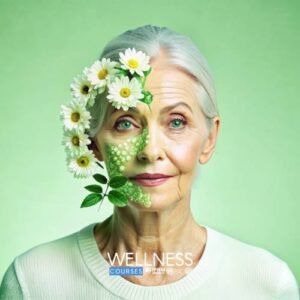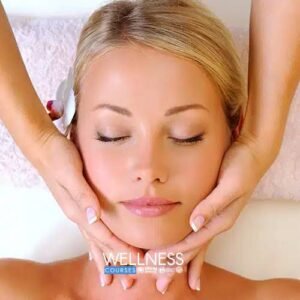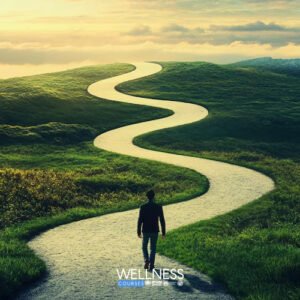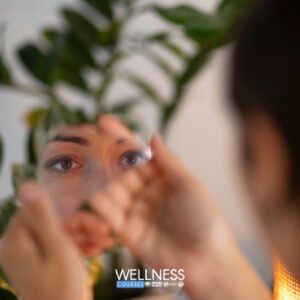Description
Secure Payment
Our website is secure and your data is encrypted.
Immediate Access
The training is available immediately.
Certificate of Completion
Certificate of training completion
Training Description
What is Menopause?
Menopause is a natural and inevitable stage in a woman’s life, marking the end of the reproductive phase. However, this transition is often accompanied by numerous physical, emotional, and social challenges that can disrupt daily life. Hot flashes, mood swings, weight gain, sleep disorders, chronic fatigue… These are just some of the symptoms that many women find difficult to manage without proper support.
Our comprehensive Menopause Coach training prepares you to become an expert in supporting women through this unique phase. You will learn to apply coaching techniques and deepen your understanding of menopause in order to offer empathetic and compassionate guidance. Through targeted modules, you will gain the skills needed to provide personalized support, practical advice, and concrete solutions that contribute to your clients’ overall well-being.
Difference Between Menopause and Perimenopause
It is essential to understand the difference between menopause and perimenopause. Perimenopause, also known as the menopausal transition, is the phase leading up to menopause. It can last for several years and is characterized by irregular menstrual cycles and various symptoms due to hormonal fluctuations. Menopause is confirmed after 12 consecutive months without menstruation, marking the permanent end of the menstrual cycle.
Average Age and Factors Influencing Menopause
The average age of menopause is 51, but it can vary between 45 and 55 for most women. Some may enter menopause earlier (before age 40, known as early menopause), while others may experience it later (after age 55). Here are the main factors that influence the onset of menopause:
- Genetic Factors: Menopause age tends to run in families and is often similar among female relatives.
- Lifestyle Habits and General Health: Lifestyle choices such as smoking or poor diet can influence menopause onset. For example, smoking is associated with earlier menopause, while a healthy diet may delay it.
- Reproductive Health and Medical History: Treatments like chemotherapy or radiation can damage the ovaries and lead to early menopause. Surgical history such as ovary removal also triggers immediate menopause.
- Weight and Body Mass Index (BMI): Women with a higher BMI may experience later menopause, whereas those with a lower BMI are more likely to enter it earlier.
- Environmental and Stress Factors: Exposure to endocrine disruptors and chronic stress can affect hormonal health and trigger earlier menopause.
- Ethnic and Geographic Factors: The age of menopause may vary slightly across ethnic groups and geographic regions.
Understanding these factors will help you anticipate and adapt your coaching approach to provide tailored support for each client.
Training Objectives
This training will enable you to:
- Understand the different stages of menopause and their physical and psychological effects.
- Master coaching techniques specific to menopause support.
- Identify and offer natural solutions to manage symptoms (nutrition, stress management, physical activity, etc.).
- Listen, analyze, and adapt your support based on the individual needs of each woman.
- Promote a holistic and compassionate approach to ensure lasting well-being and a better quality of life.
This training provides you with both theoretical and practical knowledge to become a competent Menopause Coach, capable of delivering meaningful and personalized support to women transitioning into a new stage of life.
By the End of the Training, You Will Be Able To:
- Support each woman in a personalized way by adapting your approach to their specific needs during menopause or perimenopause.
- Master the scientific and psychological foundations of menopause, including its hormonal, physiological, and emotional effects.
- Identify and propose natural strategies to help your clients manage menopause symptoms, including balanced nutrition, stress management, physical exercise, and other wellness approaches.
- Develop communication and active listening skills to create a safe, supportive space where your clients feel heard and understood.
- Encourage healthy and positive lifestyle habits that promote overall well-being and help women navigate this transition more smoothly.
- Use proven coaching techniques to motivate and guide your clients through this period with greater serenity and confidence.
- Build customized follow-up plans to ensure continuous and tailored support throughout every stage of menopause, maximizing long-term benefits.
The Advice of
Wellness Courses
Our advice is to take this training with the intention of gaining a deep and compassionate understanding of menopause, so you can become a coach capable of offering valuable and personalized support.
To stand out, we encourage you to explore all dimensions of this life stage: its physical, emotional, and psychological aspects, along with well-being management tools. A comprehensive and human-centered approach will enable you to provide high-quality support, helping your future clients overcome challenges and find a new life balance.
By training with Ma Formation Privée, you are choosing a serious and practical learning experience that will make you an expert in menopause coaching.
Training Program
Module 1: Introduction to Perimenopause and Menopause
- Chapter 1: What is Menopause?
- Chapter 2: The Stages of Menopause
- Chapter 3: Physiological and Psychological Impact
- Chapter 4: Initial Support and Holistic Approach
- Open-ended Question Sheet
Module 2: Hormonal Changes and Naturopathic Management
- Chapter 1: Understanding Hormonal Changes During Perimenopause and Menopause
- Chapter 2: Role of Key Hormones
- Chapter 3: Understanding the Symptoms
- Chapter 4: Naturopathic Approaches for Hormonal Balance: Phytotherapy, Adaptogenic and Hormone-Regulating Plants
- Chapter 5: Supplements and Support for the Endocrine Glands
Module 3: Nutrition and Menopause
- Chapter 1: Nutrition Basics for Menopause
- Chapter 2: Beneficial and Avoidable Foods: Phytoestrogens, Fiber, Antioxidants
- Chapter 3: Weight Management and Anti-Inflammatory Nutrition
- Chapter 4: Hydration and Beneficial Supplements
- Chapter 5: Specific Meal Plans and Recipes
- Wellness Recipes for Menopausal Women
Module 4: Physical Activity and Menopause
- Chapter 1: The Importance of Physical Activity During Menopause
- Chapter 2: Recommended Exercises: Yoga, Pilates, Cardio, Strength Training
- Chapter 3: Osteoporosis Prevention and Cardiovascular Health
- Chapter 4: Designing a Personalized Exercise Program
Module 5: Mental and Emotional Health
- Chapter 1: Understanding Mood Swings and Emotional Changes
- Chapter 2: Sleep and Menopause: Improving Sleep Quality
- Chapter 3: The Importance of Social Support and Relaxation Techniques
Module 6: Alternative Therapies, Sophrology, and Biofeedback
- Chapter 1: Phytotherapy, Aromatherapy, and Acupuncture for Menopause
- Chapter 2: Yoga, Meditation, and Sophrology
- Chapter 3: Biofeedback
- Chapter 4: Practical Applications for Managing Specific Symptoms
Module 7: Managing Specific Menopause Symptoms
- Chapter 1: Hot Flashes and Vaginal Dryness
- Chapter 2: Sleep Disorders and Urinary Problems
- Chapter 3: Strategies for Coping with Mood Changes
- Chapter 4: Holistic Approaches for Each Symptom
Module 8: Relationships, Sexuality, and Self-Image
- Chapter 1: Communication in Relationships and Managing Interpersonal Dynamics
- Chapter 2: Sexuality During Menopause: Guidance and Libido Enhancement
- Chapter 3: Body Image and Self-Confidence
- Chapter 4: Support for Couples and a Holistic Approach to Intimacy
Module 9: Holistic Approaches and Integration of Spirituality
- Chapter 1: Overview of Holistic Approaches for Menopause
- Chapter 2: Integrating Spirituality and Personal Development
- Chapter 3: Nutrition, Exercise, and Holistic Stress Management
- Chapter 4: BONUS: Building Self-Esteem and Stress Management for Therapists
Module 10: Practical Cases and Case Studies
- Chapter 1: Real Case Analysis and Problem-Solving Strategies
- Chapter 2: Developing Personalized Care Plans
- Chapter 3: Feedback, Supervision, and Reflective Practice
Module 11: Launching a Menopause Coaching Practice in the United States
- Chapter 1: Legal and Regulatory Framework for Coaching in the United States
- Chapter 2: Business Creation: Steps and Procedures
- Chapter 3: Marketing, Communication, Networking, and Partnerships
- Chapter 4: Financial Management and Ongoing Professional Development
Key Highlights of the Training
- Immediate access to your training
- Unlimited and lifetime access
- Complete and accessible online training
- Modules in PDF and audio formats
- Certificate of course completion
- Assessment for each module
- Study at your own pace from your computer, tablet, or smartphone
How does it work?
Once your registration is complete, you will receive a link allowing you to access your training immediately.
Customer Service: If you have any questions after placing your order, please contact us by email at: contact@wellness-courses.com
Other Recommended Trainings
- Sale!
- Sale!
- Sale!
- Sale!
- Sale!
- Sale!
- Sale!
- Sale!
- Sale!
- Sale!
- Sale!
- Sale!
For Whom and Why?
Training accessible to all, immediately and with unlimited access
This training is for everyone. While it is ideal for your personal life, it can also be adapted to your professional life, allowing you to offer a new type of service in your field.




















There are no reviews yet.